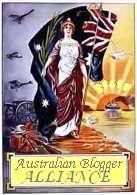Compensation....too much?
This week has been somewhat contreversial with regards to the amount of compensation paid to those who die in the military. Australia lost 9 of its finest in a helicopter crash in Indonesia; they were on their way to help out after the recent earthquake. Compensation has reared its head, the amount paid is said not to be enough by those left widowed.
I have heard many others not in the military question the amounts, saying that it's way too much and that no other job would pay out that sort of money. That these people know what they are getting into when they join, and that when they do are paid accordingly, they recieve cheap housing, health insurance and discounts at many stores. Bus drivers don't recieve much if they have an accident, niether do builders, both jobs come with risks.
The widow of Andrew Russell, an SAS soldier who died in Afghanistan 11 days after the birth of their only child, Leisa, took her fight for reform public after the Howard Government failed to act on assurances to improve benefits for future widows.
Offered a lump sum of $187,000, she instead chose a pension of $13,000 a year, tax-free for life, and other benefits.
However, her battle to improve benefits, and the experiences of families who lost loved ones in the Black Hawk disaster in Townsville in 1996, has resulted in dramatic improvements to the military compensation scheme.
Since July last year, a 25-year-old widow is eligible for payments equivalent to a war widow's pension for life or can choose an age-based lump sum of $396,728.
Partners must be married or living in a de facto relationship.
An aged-based lump sum of up to $105,472 is also available if the death is related to service.
Eligible widowed partners can also receive Gold Card treatment benefits, a telephone allowance, a pharmaceutical allowance, a funeral benefit of up to $4851 and continuation of weekly permanent impairment payments for up to 12 weeks.
Death benefits for each dependent child include a tax-free payment of $63,283 plus $69.61 a week and education assistance. A maximum of $200,396 is available for other family members, with a maximum of $63,283 for each eligible person. Australia has more than 113,000 war widows and widowers.
Totally and Permanently Incapacitated Ex Servicemen and Women's Federation president Blue Ryan yesterday urged families to seek financial advice before choosing options.
Prime Minister John Howard said this week the families of the crash victims would receive compensation under a revised system brought in last year.
"The ALP successfully lobbied the Government to extend payments to widows irrespective of whether their partner died in peacetime or wartime service," he said.
So, what do you all think? Do we payout too much, how much is enough? Should those killed in "active" duty recieve more than those serving at home say out on manouvres?






4 Comments:
This is a difficult one. Firstly I don't think wether one is on active service or not should make a difference....is active service not part of the job? I am slightly confused always in that those in the forces presumably know the danger involved and therefor are prepared for whatever reason to take them. I have the greatest respect for service personell but in countries where conscription is not an issue why should there be treatment differnet to that on 'civvy street'? There is the arguement of course that these people risk their lives to defend the rest of us and should for that alone be entitled to reasonable comp.
For me I think it has to do more with the specifics of any incident, was there negligence on the part of the individual, the employer etc etc??
I am sure tho that should I be in the postion of a forces widow I would see this differently.
I'm a trucker who transports dangerous goods.
If I die my wife gets about 100 grand.
Is that enough? Not really, I'd like to think that I'm worth more than that. Also like to have more finacial security for my family.
To do that I've taken out life and mortgage insurance.
This person in the service should get more and have better benefits.
This person also should have thought ahead and purchase insurance with a family on the way.
It's a tough call to make but like any other job they should have an affordable death benefits option, rather than a set amount given based on a rank or activness. I don't think one person's life is more or less important than another's. Those families who have a sole financial supporter enlisted should 'buy' into a larger plan perhaps.
I agree with your comments. As i said, one human beings life is no more or less important than anothers.
In most occupations, you can opt to pay out of your wages extra coverage, it's not up to the govt to bail you out.
People risk their lives everyday in many occupations, look at police. I don't see that this can be an issue.
Post a Comment
Subscribe to Post Comments [Atom]
<< Home